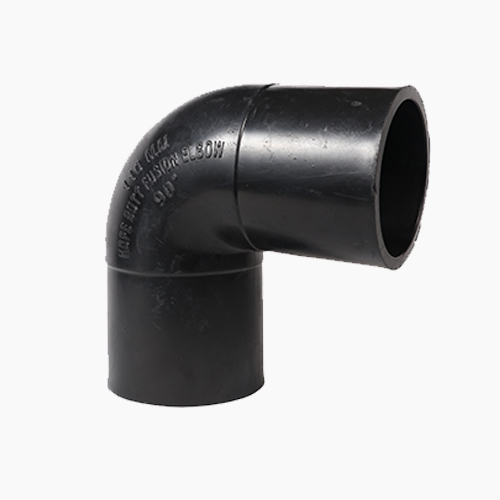Pipe and fittings suppliers are everywhere—in our homes, offices, factories, and construction sites. But here’s the thing: not all pipes are created equal. Some last decades without issues, while others start leaking or cracking way too soon. What makes the difference? Two big things:
- The quality of the pipes themselves
- The reliability of the company making them
Sometimes, picking a pipe supplier can feel confusing with so many choices out there. But relax – these easy tips will help anyone, from construction pros to DIY homeowners, find the perfect pipes and fittings. It’s simpler than you think!

Why Your Choice of Supplier Matters
- Bad pipes = big problems: Leaks, bursts, and expensive repairs down the line
- Good suppliers = peace of mind: Their pipes meet safety standards and actually last
- Extra benefits: Things like warranties, good customer service, and on-time delivery
With hundreds of pipe companies in India, how do you choose wisely? Taking a little extra time to choose the right pipes now can save you lots of trouble and money. Ready to learn how? Let’s go!
- Assess the Quality of Pipes
Just like how some water bottles can handle hot liquids while others melt, pipes differ too. Some are strong enough for heavy-duty use. While others might burst under pressure. That’s why when you are shopping for pipes:
- Quality comes first – Always check how sturdy they are
- Match the pipe to your needs – Don’t use a “weak” pipe where a “strong” one is needed
- Trust the maker – Go with manufacturers known for reliable products
2. Evaluate Supplier Reputation & Experience
Would you buy from a company no one has heard of? Probably not. Reputation matters, especially when dealing with something as important as pipes.
- Years in Business – Established pipe manufacturers with years of experience are usually more reliable. They have survived because they deliver quality.
- Customer Reviews – Check what others are saying. Look for feedback on Google, industry forums, or even word-of-mouth recommendations.
- Past Projects – Some pipe and fittings suppliers list their major clients or projects. If they’ve supplied to big industries or government projects, that’s a good sign.
3. Check Product Range & Customization Options
The right supplier should feel like a well-stocked shoe store – with the perfect “fit” for every situation. The same goes for pipe manufacturers – you want options.
- Variety Matters: Good pipe and fittings suppliers should offer different types – PVC for plumbing, HDPE for underground lines, GI for industrial use. If they only have one kind, keep looking.
- Sizes Available: Pipes come in various diameters and lengths. Check if they stock the sizes you require.
- Custom Solutions: Some projects need special pipes. Reliable pipe fittings manufacturers often provide customization – like special coatings or unique diameters.
4. Compare Pricing & Cost-Effectiveness
In the case of pipes, the least expensive choice frequently ends up costing more in the long term. Here’s how quality and price might be balanced:
- Get Multiple Quotes: Get quotes from at least three to four pipe manufacturers for the same standard.
- Bulk Discounts: For large purchases, several providers of pipes and fittings provide better prices. Negotiate without hesitation.
- Hidden Costs: Verify if the prices include GST, shipping, or installation fees.
5. Verify Manufacturing & Supply Capacity
Imagine ordering pipes for a big project, only to find out the supplier can’t deliver on time. Nightmare, right? That’s why checking a supplier’s real capabilities matters.
- Factory Visits: If possible, visit the manufacturing unit of your shortlisted pipe manufacturers. Seeing machines working and quality checks happening builds confidence.
- Production Capacity: Ask direct questions:
- How many tons/month can they produce?
- Do they keep standard sizes in stock?
- Supply Chain Strength: Good pipe and fittings suppliers have backup plans for raw materials and logistics to prevent delays.
6. After-Sales Support & Service
The relationship shouldn’t end when you receive the pipes. What happens if you face issues later?
- Warranty Periods: Reputable pipe fittings manufacturers typically offer 1-5 years warranty. No warranty? Big red flag.
- Technical Support: Check if they provide:
- Installation guidance
- Troubleshooting assistance
- Emergency contact channels
- Return Policies: Understand their terms for defective products. Some pipe and fittings suppliers replace damaged goods; others just refund.
7. Check Compliance with Industry Standards
Would you buy a helmet without an ISI mark? Probably not. The same logic applies when choosing pipe manufacturers. Industry certifications aren’t just fancy stickers – they’re proof of reliability.
Must-Have Certifications:
- BIS (Bureau of Indian Standards) for quality assurance
- ISO 9001 for quality management systems
- Environmental compliance certificates
Testing Reports: Reputable pipe and fittings suppliers should provide:
- Pressure test results
- Material composition analysis
- Durability reports
8. Delivery & Logistics Efficiency
Ever ordered something online that took months to arrive? With pipes, delays can stall entire construction projects. Here’s how to avoid that headache:
- Ask About Turnaround Time:
- Standard lead time for orders
- Emergency delivery options
- Peak season capacity
- Logistics Network: Good pipe fittings manufacturers will have:
- Multiple warehouses across regions
- Reliable transport partners
- Tracking systems for shipments
- Damage Control: Check their packaging standards and policies for transit damage. Properly packed pipes arrive intact.
Final Thoughts: Picking the Right Pipes Made Simple
Choosing pipes doesn’t have to be complicated. Just remember:
- Good pipes last longer – Don’t just go for the cheapest option.
- Check the basics – Material, size, and quality certifications matter.
- Trust matters – Buy from reliable suppliers with good reviews.
- Think ahead – Will these pipes handle your needs in 5 years?
Still confused? Reach out to pipe experts – they’ll help you decide.
FAQs
1.What are the factors to be considered when selecting a pipe?
Remember these important factors when choosing pipes:
- Material – Pick the right type (PVC, HDPE, GI, MS) for your use (water, gas, chemicals, etc.)
- Strength – Must handle the pressure and temperature it will face
- Durability – Should resist corrosion and last long
- Certifications – Look for BIS/ISO marks for quality assurance
- Cost vs Quality – Cheap pipes often cost more in repairs later
- Trusted Brand – Buy from reliable pipe manufacturers
2.What are two important criteria for selecting pipe fittings?
The two most important criteria for selecting pipe fittings are:
- Perfect Match – Must fit your pipe’s exact size and material
- Strong Enough – Should handle the same pressure/flow as your pipes
3.What are the criteria for selecting the pipe material?
The right material depends on:
- Application – Drinking water (HDPE), sewage (PVC), high heat (MS).
- Environment – Underground? Coastal? Chemical exposure?
- Budget – Some materials (like CPVC) cost more but last longer.
- Local Regulations – Certain projects require BIS-approved materials only.



